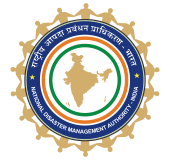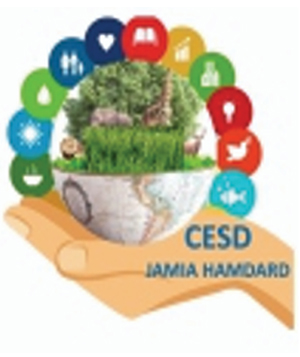Bridging Science, Policy, and Action for a Resilient Future
This theme underscores the critical need to connect scientific knowledge, evidence based policymaking, and effective on-ground action to build resilient systems in the face of escalating climate change and disaster risks. While the science of climate change and disaster risk is advancing rapidly, a significant gap remains between what we know and what we do. This theme invites dialogue on how to translate cutting-edge research into actionable strategies, policies, and programs at local, national, and global levels.
It seeks to foster collaboration among researchers, policymakers, practitioners, and civil society to co-design solutions that are not only technically sound but also socially inclusive and politically feasible. Discussions will focus on mechanisms to mainstream climate and disaster risk into planning and governance, enhance early warning systems, improve risk assessments, and ensure that scientific tools and data are accessible and usable by decision-makers and frontline communities alike.
By emphasizing the interconnectedness of science, policy, and action, this theme aims to accelerate the transition from reactive responses to proactive, integrated, and sustainable resilience-building efforts.
Equity and Resilience: Centering Communities in Climate Action
As the impacts of climate change and disasters grow more severe and frequent, it is increasingly evident that these crises do not affect all communities equally. Marginalized groups—such as low-income populations, indigenous peoples, women, children, the elderly, and those in climate-vulnerable regions—often bear the brunt of environmental shocks while having the least capacity to respond and recover. This theme highlights the urgent need to place equity at the heart of climate action and disaster risk reduction (DRR) strategies.
"Equity and Resilience" calls for a people-centered approach that recognizes local knowledge, values inclusive governance, and strengthens the capacity of frontline communities. The theme will explore how systemic inequalities exacerbate climate vulnerabilities and examine transformative approaches to ensure that resilience building efforts are just, inclusive, and empowering. Discussions under this theme will spotlight.
- Intergenerational climate justice, ensuring future generations inherit a livable planet.
- Gender-responsive strategies in climate adaptation and DRR.
- Community-led innovations and traditional knowledge systems.
- Participatory planning and financing mechanisms that prioritize the most at-risk populations.
By centering communities in climate action, this theme promotes the shift from top down interventions to locally informed, context-specific, and sustainable solutions that truly leave no one behind
Adapting to a Changing Climate: Innovations in Risk Reduction and Resilience Building
The accelerating pace of climate change is reshaping the way we live, govern, and prepare for risks. As extreme weather events, rising sea levels, heatwaves, and slow onset disasters grow more frequent and intense, adaptation is no longer optional—it is imperative. This theme focuses on the urgent need to innovate and scale up effective strategies that reduce vulnerabilities and enhance resilience across diverse sectors and communities.
"Adapting to a Changing Climate" seeks to highlight breakthrough solutions, emerging technologies, and nature-based approaches that can be leveraged to address complex climate and disaster risks in both urban and rural contexts. The theme will explore how cutting-edge tools like artificial intelligence, geospatial technologies, climate modeling, and early warning systems can be integrated into risk reduction frameworks. In addition to technological innovation, the theme will also emphasize
- Local and indigenous knowledge as critical to contextualizing and enhancing adaptive capacity;
- Climate-resilient infrastructure in cities and vulnerable landscapes;
- Nature-based solutions, such as wetland restoration, mangrove conservation, and green infrastructure, which offer cost-effective and sustainable resilience;
- Innovative financing mechanisms, including climate risk insurance and blended finance for adaptation
- Public-private partnerships and inter-sectoral collaborations that accelerate implementation.
By bringing together diverse actors—scientists, policymakers, community leaders, engineers, urban planners, and investors—this theme aims to foster a cross-cutting dialogue on how innovation can be harnessed to create robust systems that not only withstand climate threats but also adapt and thrive in a rapidly changing environment
Global Partnerships for Local Impact: Aligning Agendas for Climate and Disaster Resilience
In an increasingly interconnected world, the challenges of climate change and disaster risk are global in nature—but their impacts are deeply local. Building effective resilience requires not only local action but also coherent, coordinated, and sustained global partnerships that support communities on the frontlines. This theme emphasizes the importance of aligning international frameworks, multilateral cooperation, and national strategies with grassroots realities and local development priorities.
“Global Partnerships for Local Impact” highlights how international collaborations— whether through development aid, technical exchange, or policy alignment—can empower local governments, civil society organizations, and communities to lead transformative climate and disaster risk reduction (DRR) efforts. The focus will be on translating global commitments such as the Paris Agreement, the Sendai Framework for Disaster Risk Reduction, the 2030 Sustainable Development Goals (SDGs), and the New Urban Agenda into context-specific, actionable, and measurable local interventions. Key discussions under this theme will include:
- Multi-level governance and vertical policy coherence, ensuring that local voices inform national and international decision-making.
- South-South and Triangular Cooperation, showcasing models of knowledge exchange, solidarity, and locally appropriate solutions.
- Capacity building and technology transfer, particularly for least developed and climate- vulnerable nations.
- Financing mechanisms, including global climate funds and risk-pooling instruments that are accessible and responsive to local needs.
- Partnerships with the private sector, academia, and civil society that catalyze innovation and drive community-based resilience.
This theme serves as a platform to explore how collaborative leadership—spanning borders, sectors, and scales—can break silos and ensure that global ambitions for resilience are truly realized in the daily lives of those most at risk.
ORGANIZERS & COLLABORATORS












